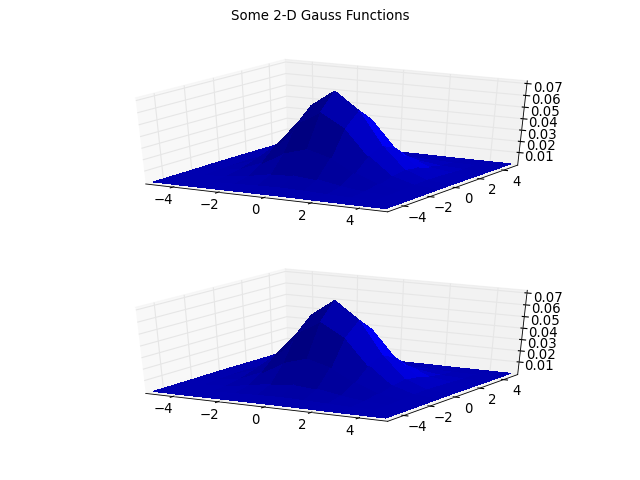sp.gauss¶
Module providing functionality surrounding gaussian function.
Example Usage¶
fspecial_gauss / gaussian2¶
from mpl_toolkits.mplot3d.axes3d import Axes3D
import pylab
import numpy
from sp import gauss
size = 11
sigma = 1.5
x, y = numpy.mgrid[-size//2 + 1:size//2 + 1, -size//2 + 1:size//2 + 1]
fig = pylab.figure()
fig.suptitle('Some 2-D Gauss Functions')
ax = fig.add_subplot(2, 1, 1, projection='3d')
ax.plot_surface(x, y, gauss.fspecial_gauss(size, sigma), rstride=1,
cstride=1, linewidth=0, antialiased=False, cmap=pylab.jet())
ax = fig.add_subplot(2, 1, 2, projection='3d')
ax.plot_surface(x, y, gauss.gaussian2(size, sigma), rstride=1, cstride=1,
linewidth=0, antialiased=False, cmap=pylab.jet())
pylab.show()
(Source code, png, hires.png, pdf)

See the individual methods below for further details.
Functions¶
- sp.gauss.gaussian2(size, sigma)[source]¶
Returns a normalized circularly symmetric 2D gauss kernel array
f(x,y) = A.e^{-(x^2/2*sigma^2 + y^2/2*sigma^2)} where
A = 1/(2*pi*sigma^2)
as define by Wolfram Mathworld http://mathworld.wolfram.com/GaussianFunction.html